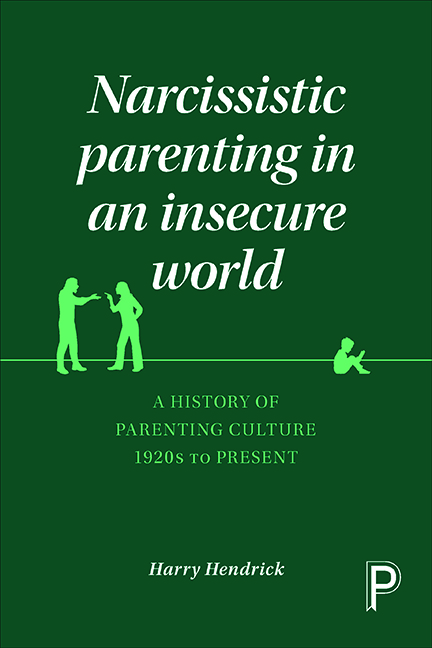Book contents
- Frontmatter
- Dedication
- Contents
- About the author
- Acknowledgements
- Introduction
- Part One The origins of social democracy’s family ideal: 1920s–1940s
- Part Two Characteristics of the ‘Golden Age’: 1940s–early 1970s
- Part Three Influences and examples from the USA
- Part Four Parental narcissism in neoliberal times: 1970s to the present
- Part Five Therapeutic reflections
- Index
Part Three - Influences and examples from the USA
Published online by Cambridge University Press: 05 April 2022
- Frontmatter
- Dedication
- Contents
- About the author
- Acknowledgements
- Introduction
- Part One The origins of social democracy’s family ideal: 1920s–1940s
- Part Two Characteristics of the ‘Golden Age’: 1940s–early 1970s
- Part Three Influences and examples from the USA
- Part Four Parental narcissism in neoliberal times: 1970s to the present
- Part Five Therapeutic reflections
- Index
Summary
Introduction
In 1960, after eight years of Dwight Eisenhower's Republican presidency, there was a resurgence of liberalism with the election of John F. Kennedy. In less than a decade that resurgence was shattered by the ‘civil war’ of the 1960s – political assassination, urban riots, civil rights campaigns, student revolution, and the anti-Vietnam war movement – leaving in its trail the failure of the ‘Great Society’ programme of social reform and the war against poverty, the fragmentation of the New Left, and the rightward drift of many liberal intellectuals. Perhaps more tellingly was the disintegration of the Democratic Party's traditional coalition of the white working-class, African Americans, and other ethnic groups. The coalition collapsed amid fractious and often violent recrimination, manifested in the resentment of the middle- and working-class at having to pay for reform programmes for the poor, continuing urban and racial unrest, and political divisions among the Democrats themselves. But some lasting progress was made during the 1960s: civil rights, women's liberation, sexual freedoms and a number of personal liberties all witnessed significant advances. By the time Nixon left office in 1974, however, American society was no more equitable than it had been at the start of the Great Society initiative, the fracturing of cities continued apace, an urban ‘underclass’, composed mainly of ethnic minorities, emerged amid a culture of violence and despair, and consumer capitalism, entering its ‘post-industrial’ phase, began to shed blue-collar jobs. All this is well known.
Less familiar is the coming of the ‘new behaviourism’ in health, education and social welfare, and the promotion of the psychologically defined ‘authoritative parenting style’ (in opposition to the ‘authoritarian’ and the ‘permissive’), both of which crossed the Atlantic to become increasingly influential in Britain. Since the advent of the behaviourist tendency and the authoritative style are central to the arguments of this book regarding the move from social-democratic parenting to parental narcissism, in order to understand the nature of their appeal in Britain (which is considered in Chapters Seven and Eight) this chapter describes their origins and the reasons for their acceptance in the United States.
- Type
- Chapter
- Information
- Narcissistic Parenting in an Insecure WorldA History of Parenting Culture 1920s to Present, pp. 165 - 168Publisher: Bristol University PressPrint publication year: 2016



